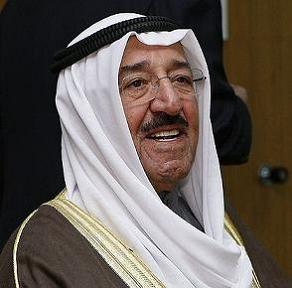Kuwaiti Emir ordered authorities to tighten security measure in the Gulf Arab state, after demonstrators, angered by high-level corruption allegations, stormed parliament a day earlier.
 Kuwaiti Emir ordered authorities to tighten security measure in the Gulf Arab state, after demonstrators, angered by high-level corruption allegations, stormed parliament a day earlier.
Kuwaiti Emir ordered authorities to tighten security measure in the Gulf Arab state, after demonstrators, angered by high-level corruption allegations, stormed parliament a day earlier.
Commenting after an emergency government meeting on Thursday, Ali Fahad al-Rashid, a government spokesman, quoted Sheikh Sabah al-Ahmed Al Sabah as denouncing the parliament protest as threatening the country's "security and stability" and calling for "stricter measures to confront this chaotic behavior".
Al-Rashid said the interior ministry and other security forces were ordered to take "all necessary measures to combat any actions that might beset the country's security".
The steps could include legal action against the protesters who entered parliament and possible crackdowns on opposition media for "any instigation", according to the official Kuwait News Agency.
The steps by Sheikh Sabah underscore the deepening political tensions in the oil-producing country.
The rifts in oil-rich Kuwait began before the Arab Spring protests, but opposition factions could be further emboldened by the push for political changes around the region.
Tension has been building over the past three months after it was alleged that about 16 MPs in the 50-member parliament received about $350m in bribes.
Critics of Kuwait's ruling family claim it turns a blind eye to allegations of widespread corruption and uses security forces to crush dissenting voices.
Dozens of protesters jumped over police barricades on Wednesday and briefly entered the parliament chamber.
This happened amid attempts by opposition politicians to bring the prime minister, Sheikh Nasser Mohammad al-Ahmad Al Sabah, 71, a senior member of the ruling family, for questioning over claims that government officials transferred state funds to accounts outside the country.